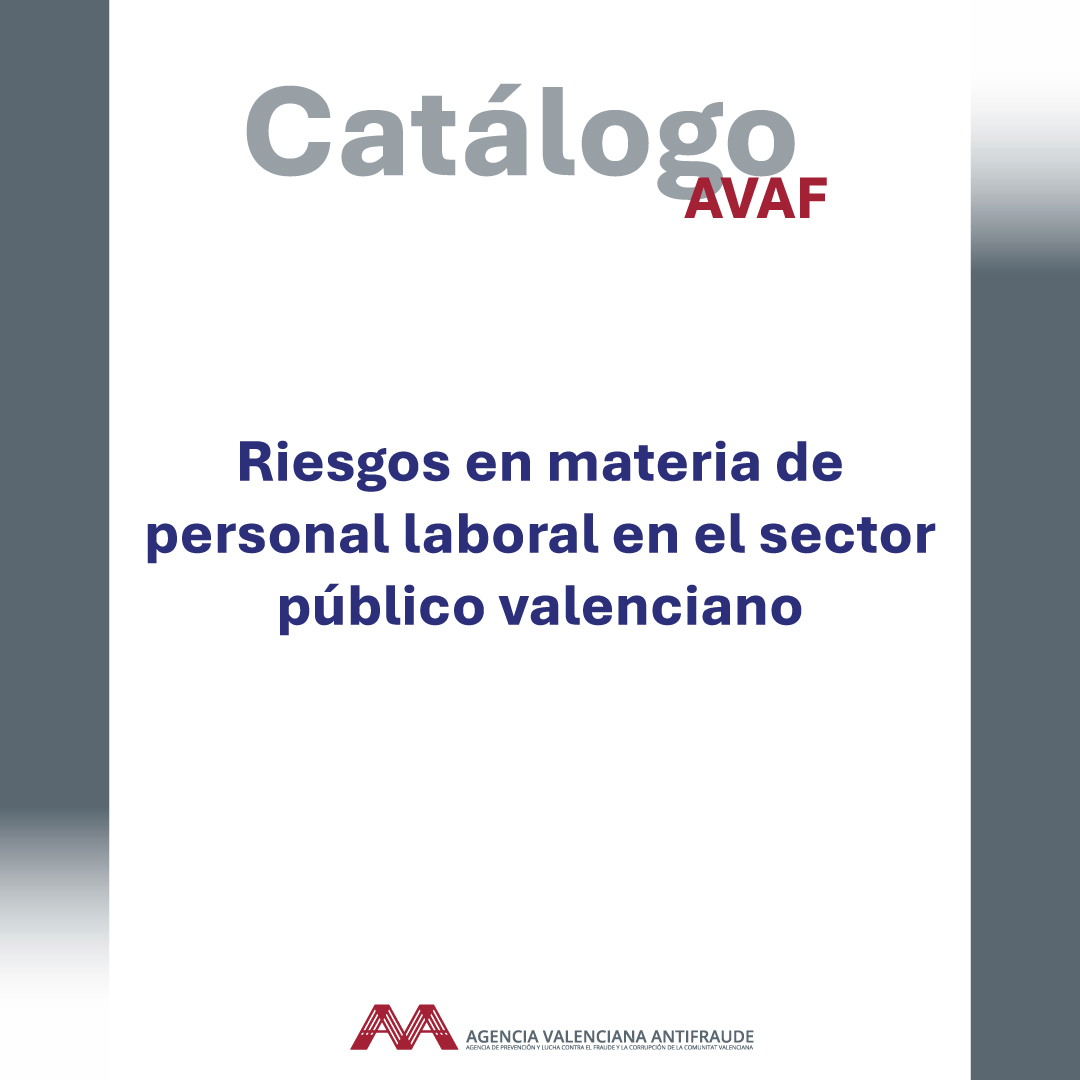The Valencian Anti-Fraud Agency publishes a Catalogue of risks concerning labor personnel in the Valencian public sector
Valencia, October 3, 2025. – The Agency for the Prevention and Fight against Fraud and Corruption of the Valencian Community (AVAF) has drawn up the Catalogue of risks concerning labor personnel in the Valencian public sector, a document that becomes a key tool to minimize the risks of irregular management, fraud, and corruption in public administration.
The new catalogue arises in response to a particularly relevant fact: 40% of the complaints received by AVAF in 2024 were related to personnel management, many of them linked to recruitment and selection systems, which calls for an urgent response from public authorities.
The study highlights risks and practices that undermine the principles of equality, merit, and ability, such as:
- Hiring of labor personnel without the university degree required for access, promotion, or filling of job positions.
- Recruitment processes limited to interviews or subjective curriculum evaluations, breaching the principles of merit and ability.
- Use of labor positions as a mechanism for consolidating temporary or non-permanent staff.
- Inclusion of labor positions in subgroup A1 with managerial functions or the exercise of public powers, contrary to the Spanish Constitution, the Consolidated Text of the Basic Statute of Public Employees (TREBEP), and case law.
These dynamics, AVAF warns, foster clientelism, the political instrumentalization of job structures, and the de-professionalization of civil service, thereby weakening the legitimacy of public administration before citizens.
The catalogue not only identifies risks but also aims to provide Valencian public institutions with a reference framework to strengthen the professionalization of their human resources, ensure transparent recruitment processes, and safeguard institutional integrity.
AVAF stresses that positions involving public powers (inspection, control, sanctioning, auditing, or authorization) must be reserved for civil servants, since assigning them to labor personnel constitutes a violation of the Spanish Constitution and TREBEP.


